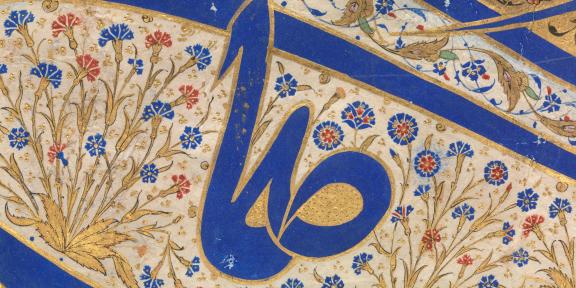This course in European and Middle Eastern Languages (EMEL) enables students to combine papers in one of the languages taught in the Faculty of Modern Languages with papers in Arabic, Hebrew, Persian or Turkish, providing opportunities to take advantage of the cultural links which exist between a number of European and Middle Eastern languages. For example, appropriate combinations might well be French and Arabic, German and Turkish, or Hebrew and Russian, but even some of the less obvious pairings would provide similar cultural and historical linkage. So, Spanish and Turkish would be an interesting combination for the history of Sephardi Judaism, while Persian and Portuguese are important for the study of early imperialism.
Through its long-standing traditions and more recent gifts, Oxford has outstanding resources for the study of Middle Eastern and modern European languages. The Bodleian Library and Taylor Institution Library (for languages) have a magnificent collection of books and manuscripts. The Taylor Institution Library is one of the biggest research and lending libraries devoted to modern European languages in the world. Associated with the University is the Centre for Hebrew and Jewish Studies, which houses the Leopold Muller Library with more than 35,000 volumes in Hebrew and more than 7,000 volumes in Western languages.
EMEL Careers
Oxford graduates in these subjects regularly go into highly competitive areas such as law, finance, commerce, management consultancy, accountancy, the media, advertising, the Foreign Office and the arts.
Recent European and Middle Eastern Languages graduates include a foreign office diplomat, a translator at the UN and a journalist at a foreign news channel.
Related courses
Students interested in this course might also like to consider other Modern Languages courses or Asian and Middle Eastern Studies courses.
International opportunities
You will normally spend your second year on an approved course of study in the Middle East. There are arrangements in place with partner universities to help you make the most of your time abroad. You are strongly advised to spend the adjacent summers in a country where the European language of your choice is spoken.
A typical weekly timetable
Your work is divided between language classes, lectures and tutorials (one or two a week). In the first year, the emphasis is on intensive learning of the Middle Eastern language. Throughout your course, you will prepare essays for your weekly tutorials and classes.
| 1st year | |
|
Courses European languages: two language papers and one literature paper |
Assessment First University examinations: Five written papers; plus oral/aural examination (Arabic only) |
| 2nd year | |
|
Year abroad For the Middle Eastern Language, students attend an approved course of language instruction. For the European Language, students are encouraged to spend as much of their vacation time as possible in a relevant country. Refer to sections on Asian and Middle Eastern Studies and Modern Languages. |
Qualifying examination at the end of the 2nd year course (Middle Eastern language only) |
| 3rd and 4th years | |
|
Courses
The options listed above are illustrative and may change. More information about current options is available on the Modern Languages and Asian and Middle Eastern Studies websites. |
Assessment Final University examinations: Nine written papers are taken including a bridging extended essay; Oral exam (both languages, but not Hebrew on the Middle Eastern side) |
The content and format of this course may change in some circumstances. Read further information about potential course changes.
